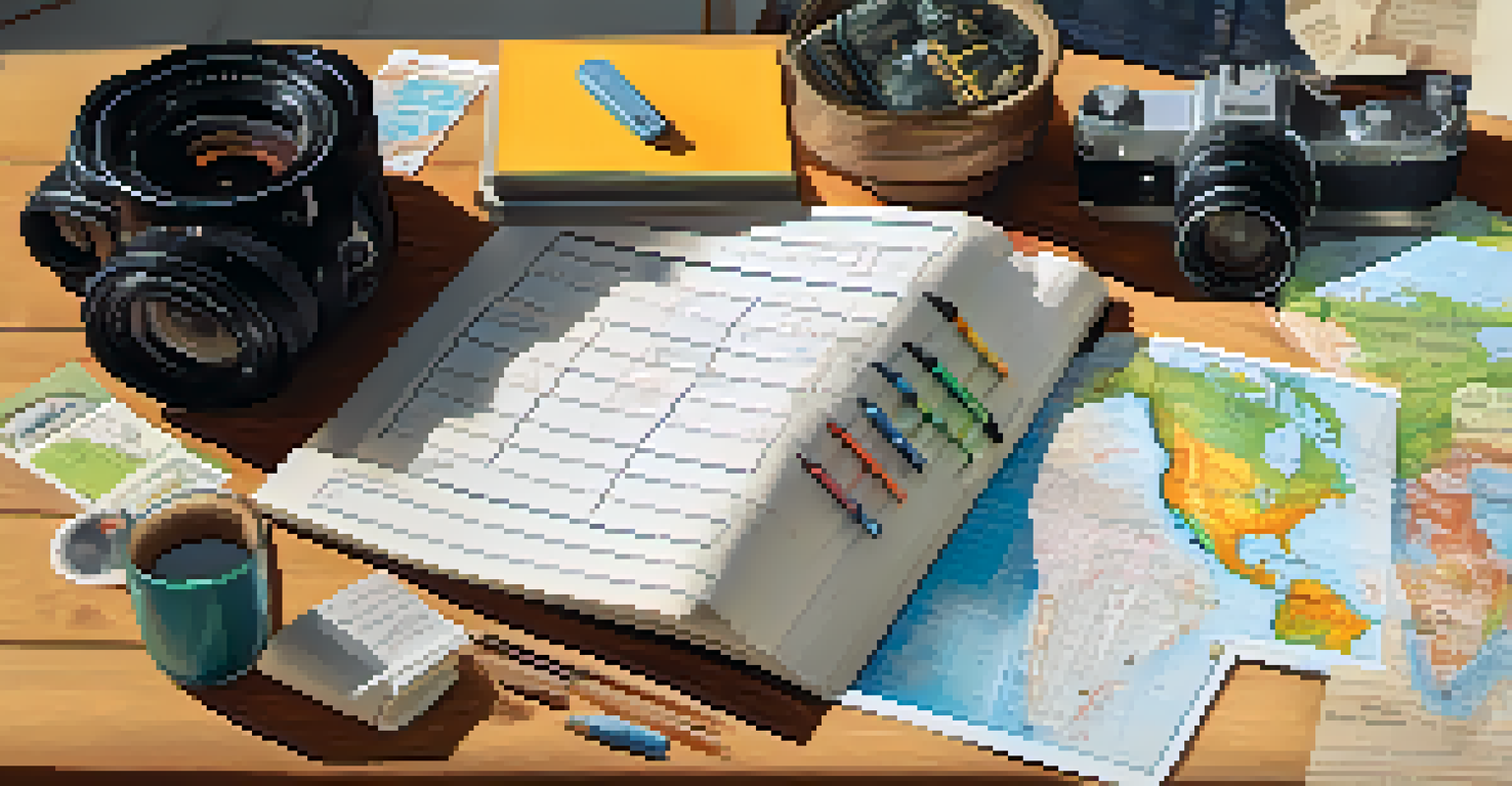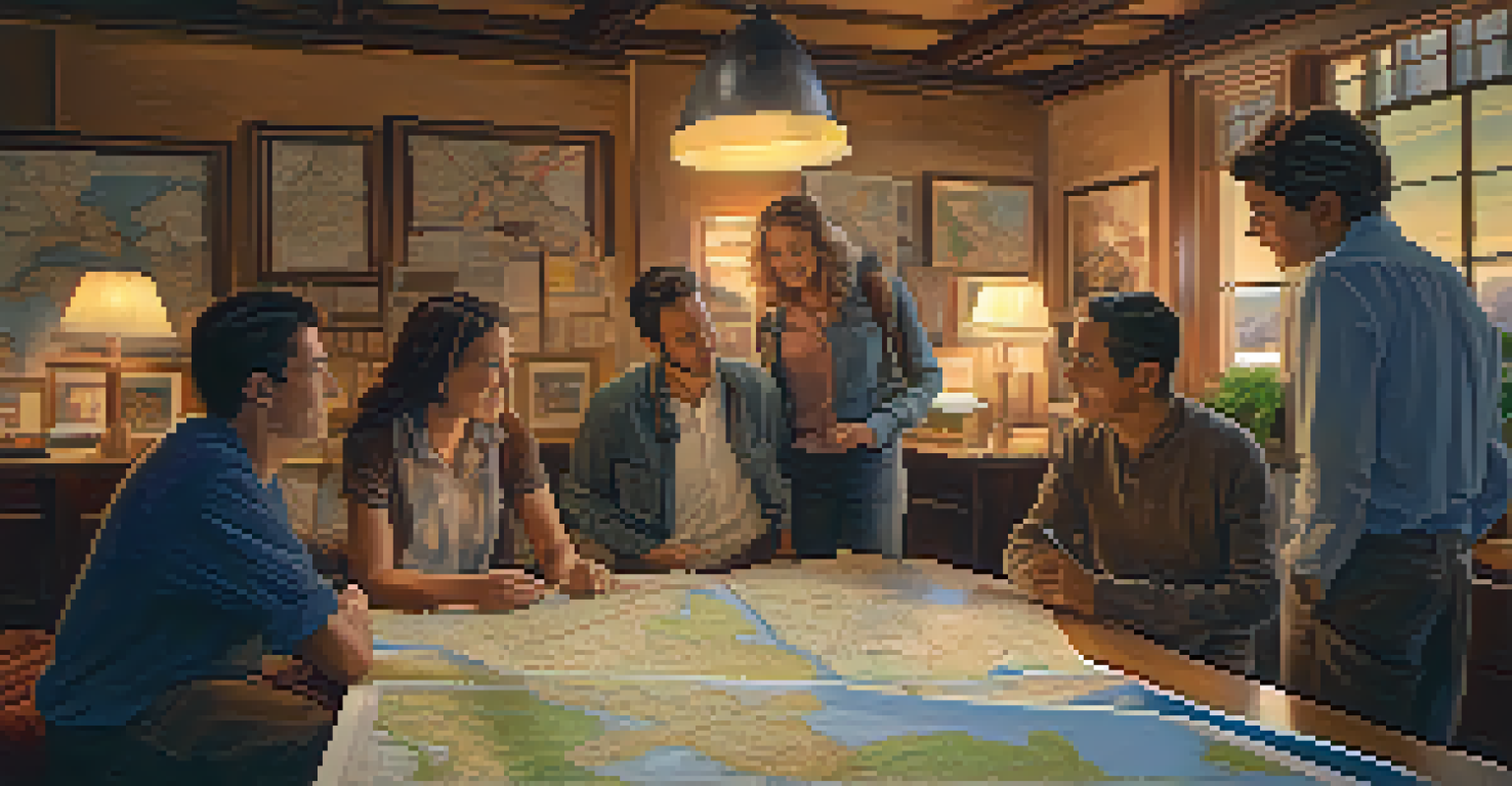Tips for Managing Conflicts During Group Travel

Understand Different Personalities in Your Group
Traveling with a group often means bringing together diverse personalities. Recognizing these differences is the first step in managing conflicts. Some individuals may be more laid-back, while others could be control-oriented or highly opinionated.
The greatest gift of human beings is that we have the power of empathy.
By acknowledging these personality types, you can anticipate potential clashes. For instance, a spontaneous traveler might clash with someone who prefers a structured itinerary. Understanding these dynamics can help you find common ground.
Encouraging open communication about everyone's travel styles can pave the way for a smoother experience. This approach fosters mutual respect and helps create a more harmonious group atmosphere.
Establish Clear Expectations Before the Trip
Setting clear expectations before embarking on your journey can significantly reduce misunderstandings. Discussing the itinerary, budget, and individual preferences ensures everyone is on the same page. This proactive step helps mitigate conflicts that may arise later.

You might consider creating a shared document where everyone can contribute their ideas and preferences. This way, each traveler feels valued and included in the planning process. Plus, it helps set realistic expectations for the group.
Understand Group Personalities
Recognizing different personality types within the group helps in managing conflicts and fosters a harmonious travel experience.
When everyone knows what to expect, it becomes easier to navigate any bumps along the way. Clear expectations serve as a guide, helping to keep the group aligned and focused on the adventure ahead.
Encourage Open Communication Throughout the Trip
Open communication is essential for maintaining harmony during group travel. Encourage everyone to voice their thoughts and feelings, especially when something bothers them. This can prevent small issues from snowballing into larger conflicts.
In teamwork, silence isn’t golden. It’s deadly.
Consider setting aside time each day for a quick check-in. This creates a safe space for group members to share their experiences or concerns. Frequent communication can help everyone feel heard and appreciated.
Remember, it's important to approach these conversations with empathy. Listening actively and validating each person's feelings fosters a supportive environment, making it easier to address conflicts constructively.
Be Flexible and Adapt to Changes
One of the hallmarks of group travel is that plans can change unexpectedly. Whether it’s a sudden weather shift or a last-minute attraction closure, flexibility is key. Adapting to these changes can help minimize frustration and keep spirits high.
When faced with a situation that calls for a change, encourage the group to brainstorm alternative options together. This collaborative effort can turn a potential conflict into a problem-solving opportunity, strengthening group dynamics.
Set Clear Expectations Early
Establishing clear expectations before the trip ensures everyone is aligned, reducing misunderstandings and potential conflicts.
Flexibility also means being open to compromise. By recognizing that everyone might have different priorities, you can find solutions that respect individual preferences while keeping the group united.
Utilize Conflict Resolution Strategies
When conflicts do arise, having conflict resolution strategies in place can make a difference. Techniques such as 'I' statements help express feelings without placing blame. For example, saying 'I feel overwhelmed when plans change last minute' can open up a dialogue without escalating tensions.
Encourage group members to focus on finding solutions rather than dwelling on problems. This shift in mindset can help everyone work together more effectively, reducing the likelihood of lingering resentment.
Sometimes, it might be necessary to take a step back. Allowing individuals to cool off before addressing conflicts can lead to more productive conversations, ultimately fostering a healthier group dynamic.
Create Opportunities for Bonding and Team Building
Fostering connections among group members can significantly enhance the travel experience. Consider incorporating team-building activities or fun bonding experiences, such as group games or shared meals. These moments can help strengthen relationships and build trust.
When group members feel connected, they are less likely to let minor conflicts escalate. Shared experiences create a sense of camaraderie, making it easier to navigate challenges together.
Encourage Open Communication
Maintaining open lines of communication throughout the trip allows for the timely resolution of issues, promoting a supportive group dynamic.
Don't underestimate the power of laughter and shared joy. Humorous moments can defuse tension and remind everyone of the trip's purpose: to create lasting memories together.
Know When to Seek Help or Mediation
Sometimes, conflicts can become too heated for the group to handle alone. If you notice that tensions are rising and discussions are unproductive, it might be time to seek help. A neutral third party, like a travel guide or an experienced friend, can provide valuable perspective.
Mediation can help facilitate discussions and ensure that everyone feels heard. This objective approach can lead to a more balanced resolution, allowing group members to move forward positively.

Recognizing when to step back and involve someone else is a sign of maturity. It shows that you value the group's harmony and are committed to ensuring everyone enjoys the trip.
Reflect on the Experience After the Trip
After the journey, take some time to reflect on the group's dynamics and any conflicts that arose. Discussing what went well and what could be improved fosters growth for future trips. This reflection can lead to better strategies for managing conflicts in the future.
Encourage group members to share their perspectives on the trip and the conflicts they encountered. This debriefing can strengthen relationships and provide insight into each person's experience.
Ultimately, every travel experience is a learning opportunity. By addressing conflicts head-on and reflecting on them afterward, you can ensure that future adventures are even more enjoyable for everyone.